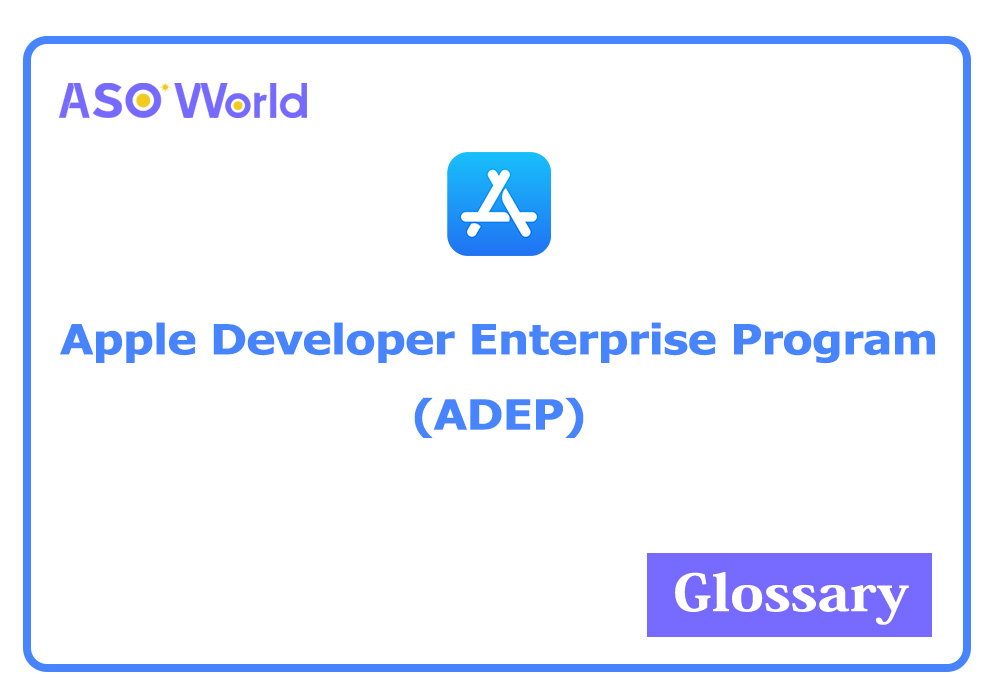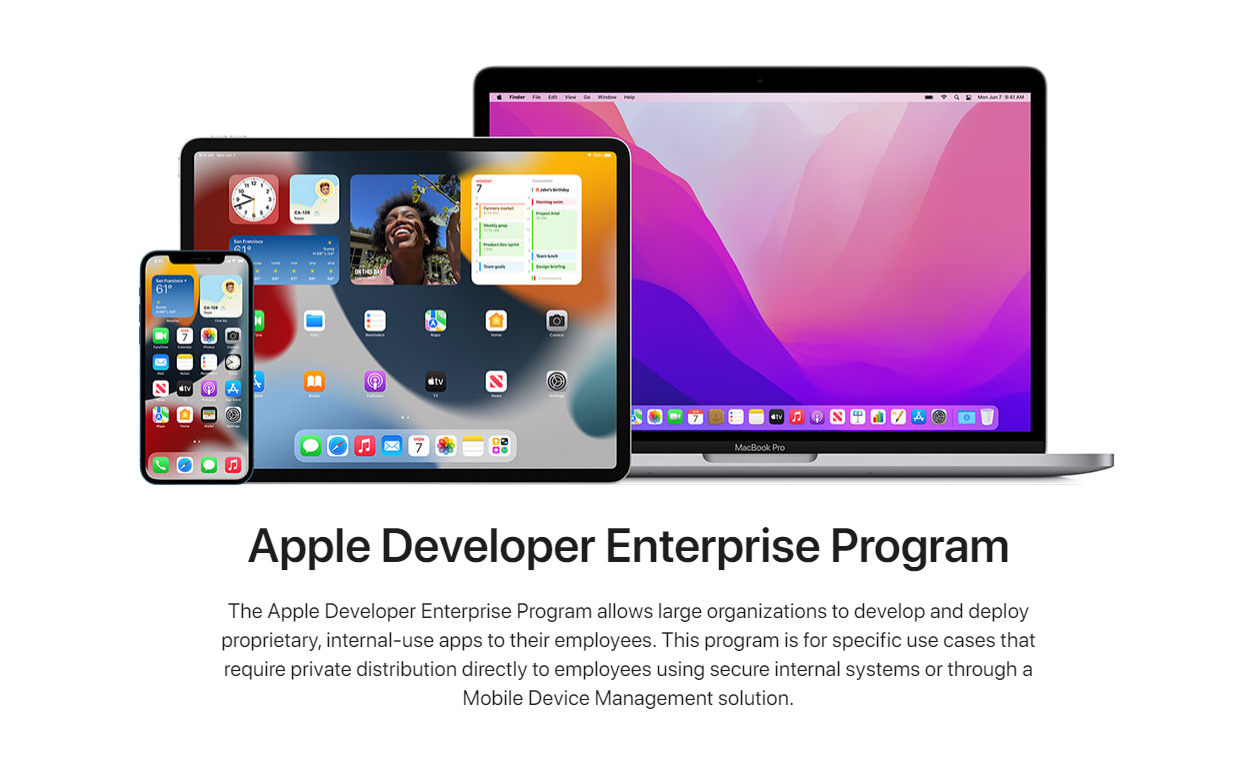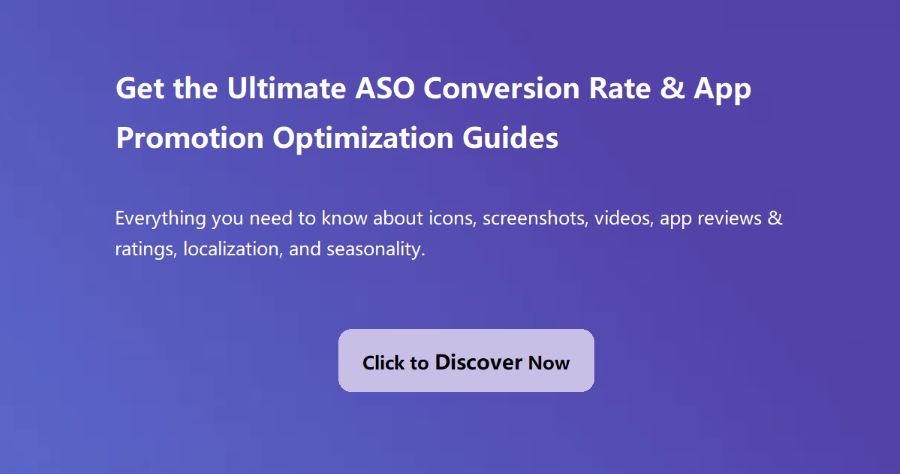
The Apple Developer Enterprise Program (ADEP) is a specialized program offered by Apple that allows organizations to develop and distribute proprietary iOS apps internally without publishing them on the App Store.
It is designed primarily for large enterprises that need to deploy applications within their organization securely.
Unlike the standard Apple Developer Program, which is intended for public app distribution, ADEP provides companies with the ability to create custom apps tailored to their internal workflows and employees.

(Credit: Apple)
Who Can Apply for the Apple Developer Enterprise Program?
ADEP is not open to individual developers or small businesses. It is strictly available to established businesses, government agencies, and other organizations with a legal entity status.
To qualify, an organization must have a D-U-N-S Number, which verifies its legitimacy.
Additionally, Apple conducts a thorough review process, including direct communication with the applicant, to ensure that the program is not misused for unauthorized app distribution.
How Does ADEP Work?
Once accepted into ADEP, organizations receive an Enterprise Distribution Certificate and a Provisioning Profile, which allows them to sign and distribute apps outside the App Store.
These apps can be installed on employee devices via Mobile Device Management (MDM) solutions, internal web portals, or direct downloads.
However, Apple closely monitors enterprise certificates to prevent misuse, and any violation of the program's terms can result in certificate revocation.
What Are the Benefits of ADEP?
-
Internal App Distribution: Enables companies to deploy custom apps without App Store approval processes.
-
Enhanced Security & Control: Organizations maintain full control over app distribution and updates.
-
Seamless Integration: Apps can be tailored specifically for internal workflows, integrating with company systems such as CRM, ERP, or HR tools.
-
No App Store Restrictions: Bypasses App Store guidelines that may not be relevant for internal business applications.
What Are the Risks and Limitations of ADEP?
While ADEP provides flexibility for enterprise app distribution, it also comes with significant responsibilities:
-
Strict Compliance Requirements: Apple enforces strict rules to prevent misuse, such as unauthorized public distribution.
-
Certificate Expiry & Revocation: Enterprise certificates expire annually and must be renewed. If misused, Apple can revoke them, rendering all distributed apps inoperable.
-
Security Risks: If an enterprise certificate is leaked or misused, malicious actors could distribute unauthorized apps under the company’s name.
How Does ADEP Impact ASO?
Since ADEP apps are not distributed through the App Store, they do not benefit from App Store Optimization (ASO) strategies such as keyword optimization, metadata enhancements, or user reviews.
However, enterprises utilizing ADEP should focus on internal discoverability within their organization. This can be achieved through:
-
Effective Internal Promotion: Using company intranets, newsletters, and training programs to educate employees about available apps.
-
User Experience Optimization: Ensuring seamless onboarding and usability to drive engagement and productivity.
-
MDM Integration: Leveraging MDM solutions for streamlined app deployment and updates.






